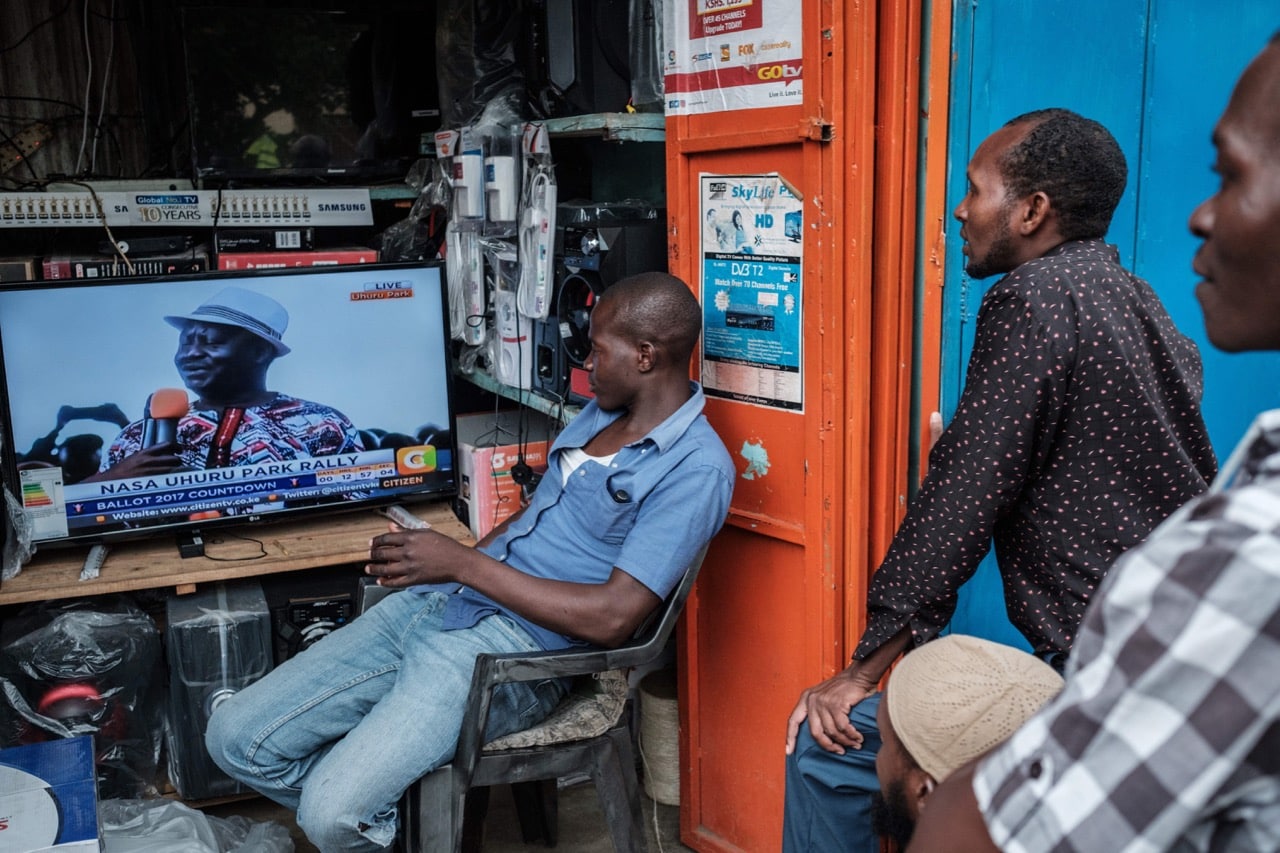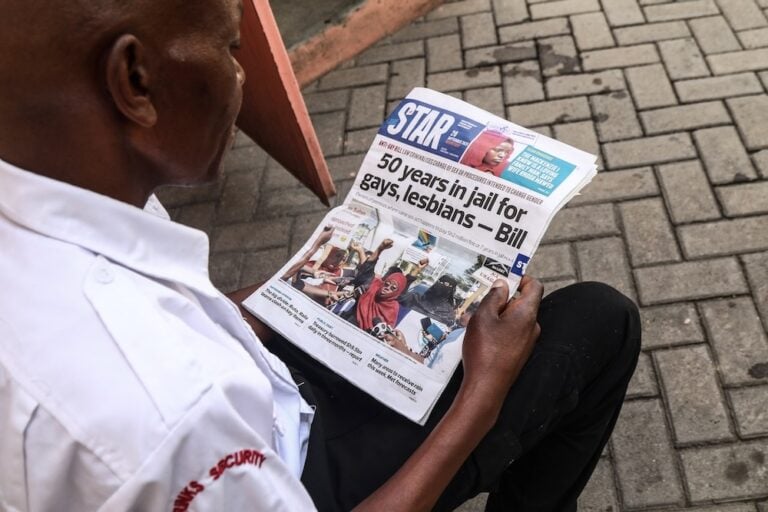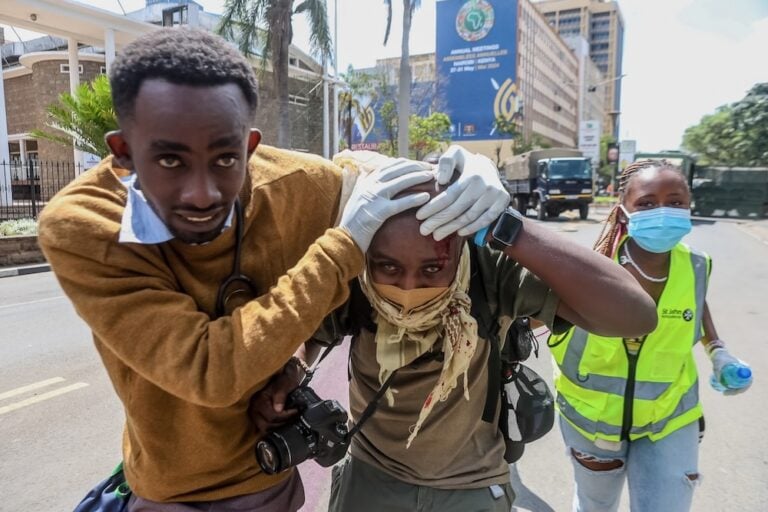Four privately-owned TV channels and around ten radio stations were taken off the air for defying a ban on covering opposition leader Raila Odinga's mock inauguration as president, a suspension that RSF says violates the right to inform.
UPDATE: On 1 February, the High Court issued an order lifting the suspension of the shutdown of 3 television stations which the Kenyan Communications Authority refused to accept. The court suspended the ban on KTN, NTV, and Citizen TV for 14 days while the case is being heard.
This statement was originally published on rsf.org on 1 February 2018.
Reporters Without Borders (RSF) calls on the Kenyan government to reinstate broadcasting by four privately-owned TV channels and around ten radio stations that were taken off the air for defying a ban on covering opposition leader Raila Odinga’s mock inauguration as president. The suspension violates the right to inform, RSF said.
Kenya’s Communication Authority began to block broadcasting by the four TV channels – Citizen TV, Inooro TV, NTV and KTN News – and the ten or so radio stations when they provided live coverage of Odinga’s symbolic swearing-in as “people’s president” in a Nairobi park on 30 January 2018. Odinga refuses to recognize the results of Kenya’s recent presidential election.
The CEO of the company that owns Citizen TV and Inooro TV said they were given no official reason prior to the suspension. But four days before Odinga’s mock inauguration, President Uhuru Kenyatta summoned media representatives to a meeting and threatened to withdraw their licences if they provided live coverage of the event.
“The government must allow these broadcasters to resume operating as normal without delay,” RSF said. “Kenyan citizens have the right to know what is happening in their country. The right to information is moreover enshrined in Kenya’s constitution. Suspending broadcasting by TV channels and radio stations on the grounds that they were covering a banned event is contrary to national and international law. Journalists are just messengers and should never be identified with one of the parties to a conflict.”
The Kenya Editors’ Guild said it was “gravely alarmed over a developing trend by the government to gag or threaten the media over coverage of the current political events in the country.”
An editorial yesterday in the Daily Nation, a newspaper owned by the same company as NTV, stressed that the media were not taking sides in the political battle between President Kenyatta’s Jubilee party and Odinga’s opposition coalition, the National Super Alliance (NASA).
The Kenyan media and journalists’ associations have called on the government to respect articles 34 and 35 of the constitution, which guarantee media freedom and the public’s right to information.
Kenya is ranked 95th out of 180 countries in RSF’s 2017 World Press Freedom Index.



